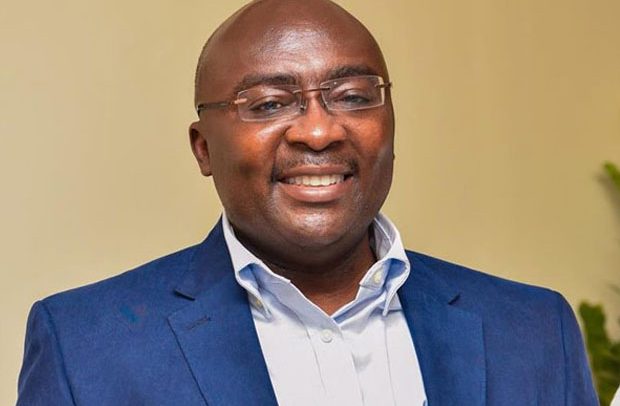Vice President Mahamudu Bawumia
The Akufo-Addo-led administration has decided to promote the development of cost effective utility-scalable solar energy projects.
These projects are aimed at accelerating the development of mini-grid solutions in off-grid and island communities for lighting, irrigation and other economic activities.
Vice President Mahamudu Bawumia who made the announcement at the 4th Ghana Renewable Energy Fair under the theme ‘Renewable Energy; Exploring Energy Resources at the District Level’ in Accra yesterday said “the projects will be subjected to competitive bidding to enable us adopt the most efficient technologies and also achieve value for money.”
Meanwhile, government is supporting the Volta River Authority (VRA) to develop two utility-scale PV plants totaling 12 MW in the Upper West Region and 75 MW wind power plant at Anloga.
He was however baffled that “the price of electricity from the grid-connected solar power plants is often relatively high in this part of the world, at the time when the cost of renewable technologies is actually rapidly declining.”
Dr Bawumia therefore urged the Ghana Irrigation Development Authority (GIDA) “to seriously consider the use of cost effective utility-scale renewable energy technologies in their irrigation schemes for areas that are remote from the national grid.”
He also challenged the Energy Commission, which has the mandate to promote renewable energy in the country to “proactively engage the relevant Ministries, Agencies and MMDAs to assist in identifying areas in which cost effective utility-scale renewable energy technologies can be used to accelerate or enhance their development plans.”
Biogas
The Vice President talked of biogas as another form of technology which he considered as an answer to challenges associated with waste disposal and sanitation, saying “biogas technology can be used to treat urban waste and in the process, produce electricity and organic fertilizer for agricultural purposes.”
If properly used, the Vice President indicated that “renewable energy technologies could generate employment for many young people in our districts and enable them improve their livelihoods.”
“A clear example of the job creating potential of renewable energies could be seen in the establishment of a 100kW waste to energy plant by SafiSana Ghana Limited at Ashaiman. Young people collect biodegradable waste in the community as the main input to the production process to generate electricity and organic fertilizer as by-products”, he emphasised.
On his part, Chairman of the Energy Commission, Professor George Panin Hagan said the fair was instituted to respond to the responsibilities assigned to the Energy Commission in the renewable energy Act 832 which sought to develop renewable energy in the country and to protect the environment.
That, he said, would also help focus attention on the harnessing of energy resources in the districts to give strategic support to the government’s 1 District 1 Factory (1D1F) and the Planting for Food and Jobs programmes.
District level industries and agricultural projects, Prof Hagan explained, required cheap and reliable energy to be sustainable and profitable and the only way to ensure that is to turn to renewable local resources.
Regulation
In that regard, he disclosed that the Commission has produced a regulatory framework for all stakeholders to be discussed and forwarded to cabinet and parliament for approval.
The regulatory framework, according to Prof Hagan, would enable investors to form partnerships with district assemblies and community leaders to establish, own and manage mini grid systems in isolated but potentially wealthy district communities.
He was hopeful that the fair would shape the
policy to enhance the socio-economic development of the country.
By Charles Takyi-Boadu, Presidential Correspondent

